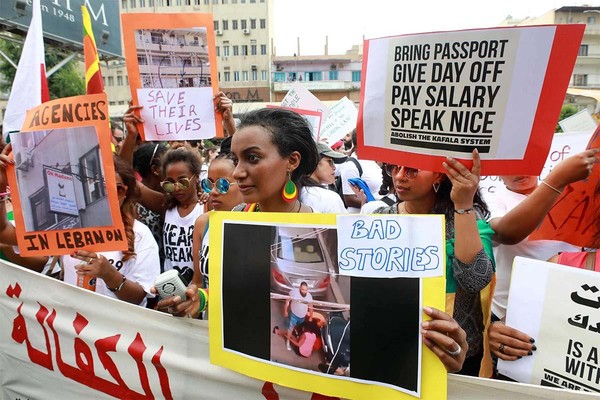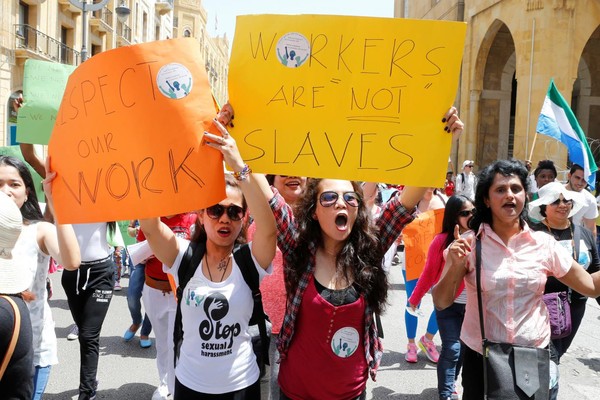Thousands of women leave their homes each year to become domestic workers in the Middle East. In the last two decades, many — most of them coming from Southeast Asia and Africa — have headed to countries such as Lebanon, Kuwait, and Saudi Arabia in the hopes of making a decent living to support their struggling families back home. But even though some succeed in earning a regular income, a huge proportion of these workers suffer from isolation, food deprivation, and unpaid wages. Unimaginable mental and physical abuse has led to deaths in the worst cases. In most areas of the Middle East, domestic workers are not protected under labor rights, and thus their well-being is ignored. They are not given basic employee — or even human — rights. Organizations like Human Rights Watch consider the problem to stem from a system known as the Kafala system.

Kafala is a sponsorship system that associates the legal status of a domestic worker to their employer. This system gives employers practically total control over their employees, and consequently enables terrible abuse towards workers. Since the system does not include labor laws, basic privileges like minimum wage, day-offs, and protection from harm are not granted. The system is supposed to ensure that foreign workers are registered to a household that is responsible for their legal and employment status. However, it is becoming a way to legitimize contemporary slavery. The system allows employers to confiscate an employee’s passport and travel documents, and states that a domestic worker cannot change an employer without the approval of the current “sponsor”. Domestic workers therefore effectively have no rights to choose where they want to work or live. This traps them in abusive situations, even when such abuse is reported. There have been several accounts from human rights groups detailing how some workers who had been hospitalized due to injuries incurred from their employers were still forced to return to the very same household after treatment.

In a study conducted in Lebanon about a decade ago, it was observed that on average, one domestic worker died every week, and a majority of the deaths were cases of suicide, physical violence from employers, or injuries sustained while attempting to escape bondage. The police rarely consider such incidents as worthy of an investigation. The government makes apathetic promises to improve domestic workers’ lives, dismissing criticisms of the Kafala system by claiming that it is necessary to protect both employers and employees. Considering that the workers are foreigners and women and come from poor countries, such narratives make them more vulnerable to unimaginable exploitation and abuse and effectively leaves employers unchecked.
It is easy to question why women still decide to work as domestic workers in such environments despite knowing the risks. Well, a lot of them don’t. A great level of deception and trickery is involved in enticing them into these jobs. Recruiting agents from both sides lure women into a false sense of security and confidence, while some don’t even tell the workers the exact nature of their jobs. On the other hand, some women who know the dangers still choose to try their luck, since there are minimum alternative job opportunities in their country. Agents take advantage of their situation by bringing them in — often through illegal ways that international standards would consider human trafficking.
With more activists criticizing the Kafala system as an effective enabler of abuse and modern-day slavery, stories of workers being mistreated, abused, raped, and murdered have made headlines for over a decade. Some organizations are helping workers who manage to escape by providing safe houses. They help the workers tell their stories and be heard. Still, great effort is needed to bring substantial change to workers’ lives.

